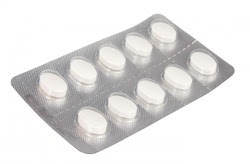Demand for Antiparasitic Drugs High in France and Germany Due to Tropical Parasitic Disease Caused By Hybrid of Two Infectious Worms
Antiparasitic
drugs are a category of medicines that are mainly recommended for the cure of
parasitic infections, including those caused by amoebae, helminth, eukaryotic
parasites, protozoa, and yeast, among many others. Parasitic infections are
especially prevalent in tropical areas, but they also occur in subtropical and
temperate regions, where they tend to infect immigrants and travelers. This
group of medicines also includes some antibiotics, such as erythromycin and
sulfamethoxazole. Antiparasitic drugs can either induce resistance against the
disease or prevent its development. Resistance against the drug develops over
time and may be difficult to reverse.
The
demand for antiparasitic drugs is high in France and Germany due to tropical
parasitic disease caused by hybrid of two infectious worms. These drugs
include, antiprotozoal agents such as antimalarials, antibabesial agents,
antiamoebic agents, antigiardial agents, trypanocidal agents, antileishmanial
agents, anti-toxoplasma agents, and antitrichomoniasis agents; antihelminthic
agents such as anticestodal drugs, antinematodal drugs, and antinematodal drugs;
and ectoparasiticides such as antiscabietic agents and pediculicides. Recently,
in March 2021, European Medicines Agency warned against the use of Merck &
Co’s antiparasite drug, ivermectin, for the treatment or prevention of COVID-19
outside clinical trials.
Antiparasitic
drugs can be administered orally, intravenously, topically or through
inhalation. Topical application of antifungal substances is commonly used.
Medications that require only oral administration are listed under the title of
antifungals. Oral drugs used in the treatment of fungal infections include
tetracycline, doxycycline, minocycline, and doxycycline trimethoprim/sulfamethoxazole
combination. Antimicrobial agents such as erythromycin, clarithromycin,
Erythromycin, Metronidazole, Miconazole, and clindamycin and fluconazole
combination are generally used in the treatment of fungal infections.
Antiparasitic
drugs are grouped according to their mode of action in order to provide maximum
benefit against fungal infections. Antifungal drugs which act on the fungal
cells directly are known as drug-based medicines, while those that act on the
bacteria are called systemic medications. Systemic medications are required in
very low doses and prolonged periods for the complete cure of fungal
infections.


Comments
Post a Comment